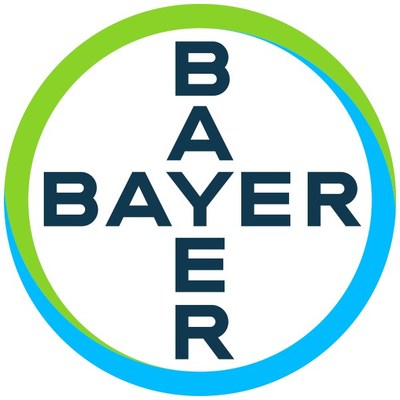The safety and tolerability observed in the trial were consistent with previously published data on darolutamide.
- The safety and tolerability observed in the trial were consistent with previously published data on darolutamide |
|
WHIPPANY, N.J., Oct. 24, 2018 /PRNewswire/ -- The Phase III ARAMIS (Androgen Receptor inhibiting Agent for MetastatIc-free Survival) trial that investigated darolutamide in men with non-metastatic castration-resistant prostate cancer (nmCRPC), met its primary endpoint. Darolutamide significantly extended metastasis-free survival (MFS) compared to placebo. The safety profile and the tolerability of darolutamide observed in the ARAMIS trial were consistent with previously published data on darolutamide. ARAMIS is a randomized, multi-center, double-blind, placebo-controlled trial in patients with nmCRPC. Darolutamide is an investigational, oral androgen receptor (AR) antagonist developed jointly by Bayer and Orion Corporation, a globally operating Finnish pharmaceutical company.
"Despite recent advances in nmCRPC, there remains a high unmet need for additional treatment options that delay the time to metastases," said Scott Fields, MD, senior vice president and head of Oncology Development at Bayer's Pharmaceutical Division. "We are encouraged by the results of the ARAMIS trial and look forward to presenting the full data at an upcoming scientific meeting." Bayer plans to discuss the data from the ARAMIS trial with health authorities regarding the submission of a new drug application. Bayer has been granted Fast Track designation by the U.S. Food and Drug Administration (FDA) for darolutamide in men with nmCRPC. About the ARAMIS Trial The primary endpoint of this trial is metastasis-free survival (MFS), defined as time between randomization and evidence of metastasis or death from any cause. The secondary objectives of this trial are overall survival (OS), time to first symptomatic skeletal event (SSE), time to initiation of first cytotoxic chemotherapy, time to pain progression and characterization of the safety and tolerability of darolutamide. About Castration-Resistant Prostate Cancer (CRPC) Prostate cancer results from the abnormal proliferation of cells within the prostate gland, which is part of a man's reproductive system. It mainly affects men over the age of 50, and the risk increases with age. Treatment options range from surgery to radiation treatment to therapy using hormone-receptor antagonists, i.e. substances that stop the formation of testosterone or prevent its effect at the target location. However, in nearly all cases, the cancer will become resistant to conventional hormone therapy1. CRPC is an advanced form of the disease where the cancer keeps progressing even when the amount of testosterone is reduced to very low levels in the body. The field of treatment options for castration-resistant patients is evolving rapidly, but until recently, there have been no approved treatment options for CRPC patients who have rising Prostate-Specific Antigen (PSA) levels during ADT and no detectable metastases. In men with progressive nmCRPC, a short PSA doubling time has been consistently associated with reduced time to first metastasis and death2. About Darolutamide Darolutamide is not approved by the U.S. FDA, the European Medicines Agency or any other health authority. About Oncology at Bayer About Bayer © 2018 Bayer Media Contact: Forward-Looking Statement References COR-DAR-US-0001-1 10/2018 Intended for U.S. Media
SOURCE Bayer |





